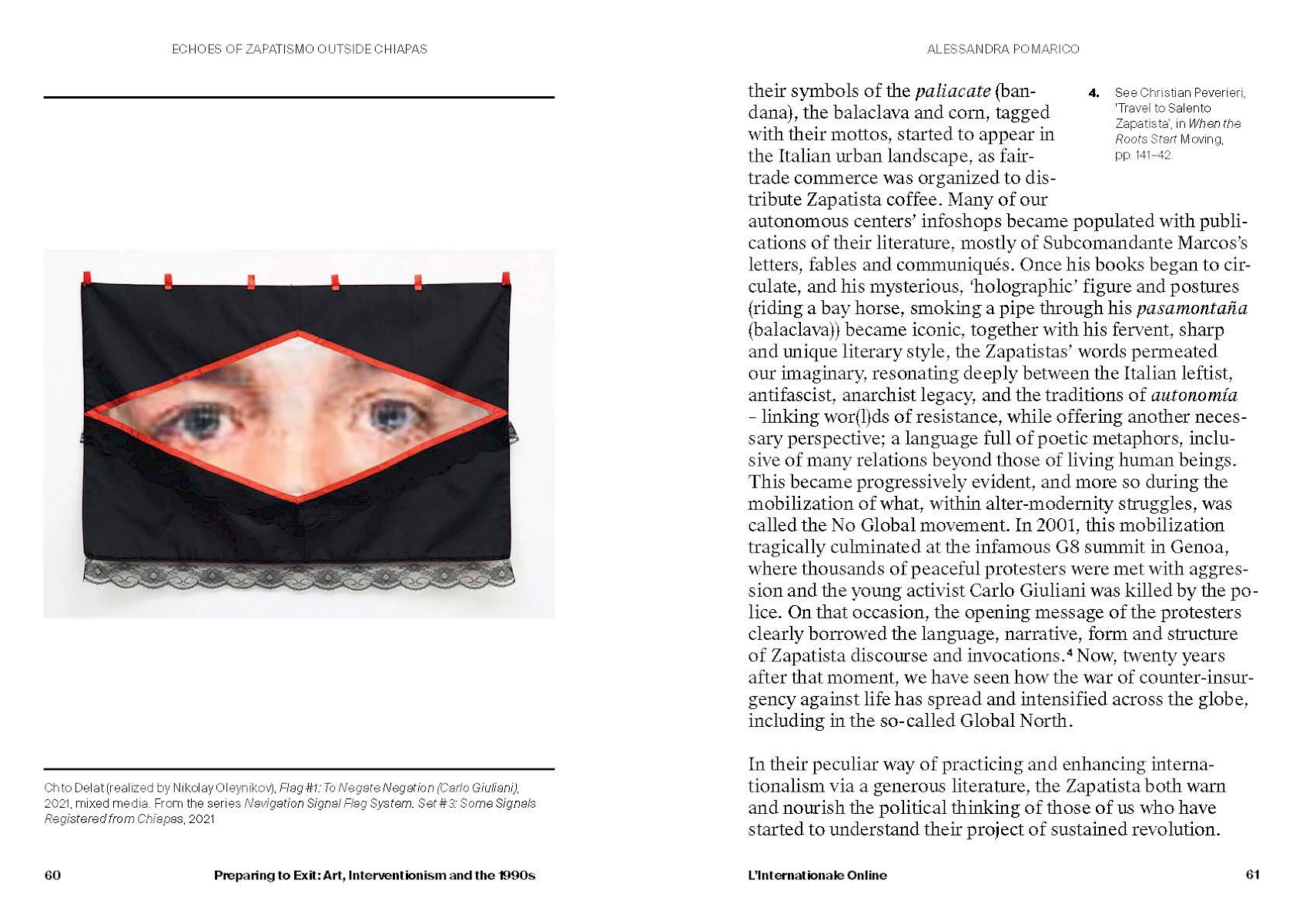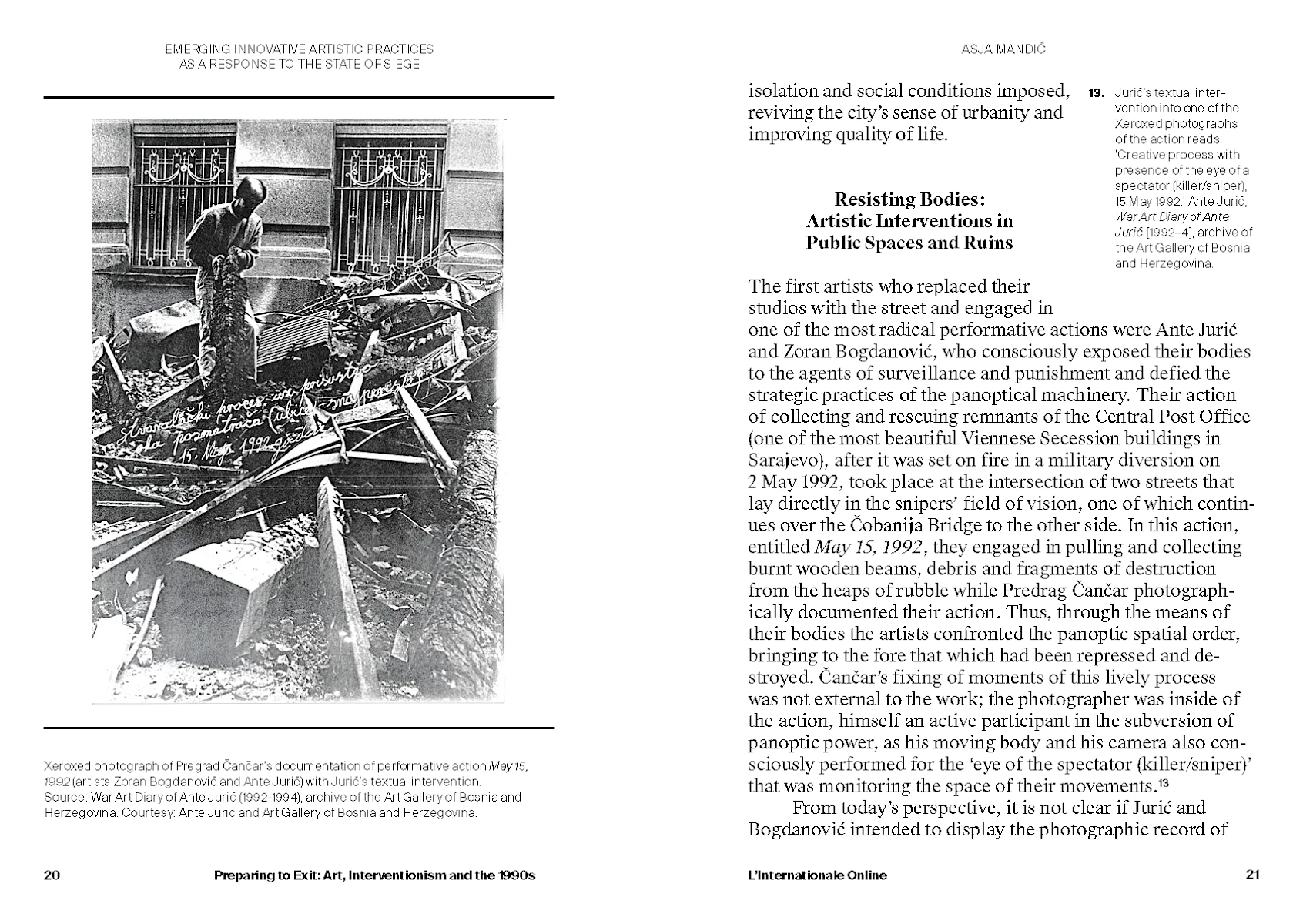Preparing to Exit: Art, Interventionism and the 1990s
Edited by Nick Aikens and David Crowley
Graphic Design: Christophe Clarijs
Contents
-
9.Biographies
-
10.Colophon
This collection of essays, interviews and images results from L'Internationale’s current focus on the 1990s and, in particular, our wish to identify actions and alliances from that era that form constellations with our own. Most optimistic claims made during that period were hubristic – not least the promise that technology and post–Cold-War politics would turn the world into a super-connected ‘global village’, and that the ensuing spread of civic society and liberal democracy would usher in ‘the end of history’. Cultural institutions – including the museums and galleries that compose the L'Internationale confederation today – were charged with the task of extending civic society and delivering an image of a common and inclusive future. Indeed, confederation members Museu d’Art Contemporani de Barcelona (MACBA), Museo Reina Sofía in Madrid, and Salt in Istanbul were created in the late 1990s and early 2000s to bolster civic life – a project that is ongoing. At the same time, many conflicts of the current era can be traced back to this period of considerable social and cultural turmoil. The after-effects of the collapse of the Soviet Union in 1992 reverberate with Russia’s war of aggression in Ukraine, as we write these words.
However, another less well-known version of the 1990s also exists, from which alternative, often highly local expressions of cultural politics and political activism emerged, and which may yet inspire other futures. This version was shaped by interventions by artists and activists, who acted collectively and in partnership with their communities, in seemingly ‘marginal’ settings, and without the kind of support available in the centres of the 1990s turbo-capitalist boom. Much of their work seemed unfathomable and was dismissed as peripheral by commentators at the time, particularly when it travelled from its place of origin to elsewhere. Yet this output now seems vital and urgent, in harmony with the loud, contemporary calls for decolonisation and self-determination: the rights of peoples to their land, to shape their cultures, to determine the economic and political systems in which their lives are lived – put plainly, the right to a future.




